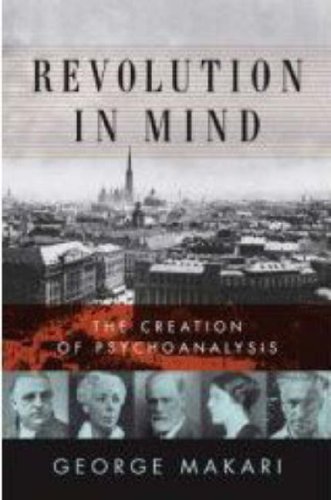
Synopsis
This history of psychoanalysis tells the story of its birth, development, and death in Europe between 1870 and 1945. It looks at how Freudian theory came together as a body of ideas, and how those ideas attracted followers who spread this model of the mind throughout the West.
"synopsis" may belong to another edition of this title.
About the Author
George Makari is director of Cornell's Institute for the History of Psychiatry, associate professor of psychiatry at Weill Medical College, adjunct associate professor at Rockefeller University, and a faculty member of Columbia University's Psychoanalytic Center. His writings on the history of psychoanalysis have won numerous awards. He lives in New York City
From Publishers Weekly
Makari, the director of Cornell's Institute for the History of Psychiatry, provides a comprehensive early history of psychoanalysis from 1895 to 1946. Although his early colleague Josef Breuer justifiably claimed that Freud was a man given to absolute and exclusive formulations, the great Viennese thinker's revolutionary understanding of the psyche evolved quite a bit, shifting away from psychosexual theory toward the tripartite division of the psyche (ego/id/superego) around 1920. Discussing the steadily growing community of psychoanalysts in Vienna (and, successively, in Zurich, Berlin and elsewhere), Makari notes that the Freudians could sometimes be intellectually insular and sectlike, resulting in the expulsion of Alfred Adler and C.G. Jung from Freud's circle between 1907 and 1913. Makari succinctly describes developments after Freud's influence peaked, especially the prominence of what came to be called ego psychology as developed by Heinz Hartmann, and the bitter intellectual dispute between Melanie Klein and Anna Freud. Makari tries to cover so much ground that some sections get a bit sketchy, but most of his ideas come across clearly in this challenging but rewarding intellectual history. 31 b&w photos. (Jan. 8)
Copyright © Reed Business Information, a division of Reed Elsevier Inc. All rights reserved.
"About this title" may belong to another edition of this title.
Other Popular Editions of the Same Title
Search results for Revolution in Mind: The Creation of Psychoanalysis
Revolution in Mind: The Creation of Psychoanalysis
Seller: WorldofBooks, Goring-By-Sea, WS, United Kingdom
Hardback. Condition: Very Good. The book has been read, but is in excellent condition. Pages are intact and not marred by notes or highlighting. The spine remains undamaged. Seller Inventory # GOR005881140
Buy Used
Quantity: 2 available
Revolution in Mind: The Creation of Psychoanalysis
Seller: Greener Books, London, United Kingdom
Hardcover. Condition: Used; Very Good. **SHIPPED FROM UK** We believe you will be completely satisfied with our quick and reliable service. All orders are dispatched as swiftly as possible! Buy with confidence! Greener Books. Seller Inventory # 4980475
Buy Used
Quantity: 1 available
Revolution in Mind: The Creation of Psychoanalysis
Seller: Bookmans, Tucson, AZ, U.S.A.
Hardcover. Condition: Acceptable. Highlighting/Underlining/Notes etc. Satisfaction 100% guaranteed. Seller Inventory # mon0001365396
Revolution in Mind: The Creation of Psychoanalysis
Seller: SAVERY BOOKS, Brighton, East Sussex, United Kingdom
Hardcover. Condition: Very Good Plus. Dust Jacket Condition: Very Good Plus. HARDBACK IN JACKET 2008. Clean & tight. No inscriptions. Flat pages. Jacket is not torn. Jacket is now under clear removable covers. Dispatched ROYAL MAIL FIRST CLASS with TRACKING next working day or sooner securely boxed in cardboard. ref ORD4. Revolution in Mind: The Creation of Psychoanalysis. Seller Inventory # 037961
Buy Used
Quantity: 1 available

